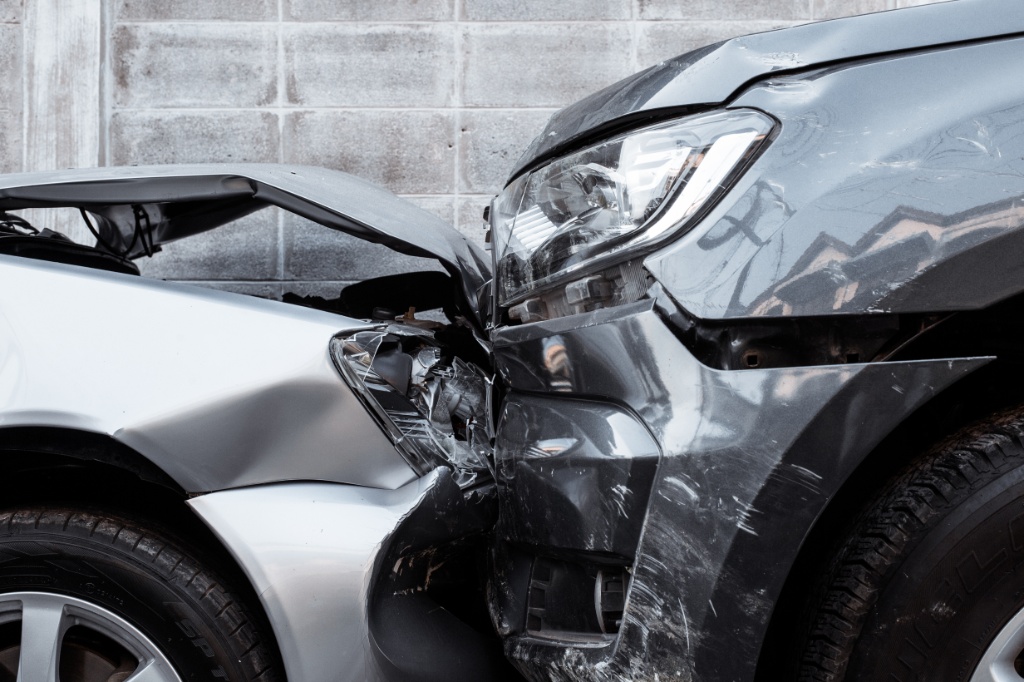March 5, 2021 | car accident Claims
Talking To Your Teen About Impaired Driving
In Ontario, car accidents are the leading cause of death among the province’s youth. Owing to both inexperience behind the wheel and greater risk-taking on the road, Ontarians aged 16-25 have the province’s highest rates of injuries and fatalities as the result of motor vehicle collisions. Alcohol and/or drugs are a factor in more than half of those fatal collisions.
It is never too early to talk to your teenage driver about the real-life consequences of impaired driving. Although provincial educational initiatives designed to teach newly licensed drivers about the risks of poor decision-making may have positive impacts on the driving habits of Ontario’s next generation of motorists, this demographic continues to be at the greatest risk of being seriously injured, or tragically killed as the result of a motor vehicle accident on the province’s roads. That is why educating youth about the dangers of driving under the influence of alcohol and/or drugs needs to begin at home.
According to Mothers Against Drunk Driving (MADD Canada), one of the best ways to educate the young, novice driver in your family about responsible habits on the road is to lead by example. By being a role model, parents can set a positive example for their children through their behaviour. When teenagers see their parents making alternate travel arrangements to attend parties, barbecues, dinners, or other events where alcohol will be served, they can appreciate the preparatory actions that should be taken to ensure a safe arrival back home.
Honesty, openness, and trust are all important conditions for serious conversations with your teenager. It is important for teens to know that, as their parent, they can call you anytime for a safe, repercussion-free ride home if they are incapable of driving due to inebriation. By establishing trust in this manner, teenagers can understand that, even if you do not condone their use of alcohol or drugs, you prioritize their safety. It is more important for them to be honest about their situation and get home safely than to think they need to cover up their indiscretion by risking their lives, and the lives of other road users.
MADD Canada also suggests that entering into a formal contract with parents or a friend may help hold teenagers accountable for their actions. The organization’s sample contract outlines agreement terms for both teenagers and their guardians or friends, to establish trust and to address the practical realities of uncomfortable situations that may arise in the future, if they become too intoxicated to drive. The organization suggests that this contract should only be signed once its terms and conditions have been discussed by both the teenage driver and the loved one looking out for their safety.
However, that does not mean that once a conversation has been had and a document has been signed that a parent’s job is complete. Teenagers learn through repetition. By reinforcing constructive conversations about impaired driving and responsible behaviour on the road, parents can help their teenagers keep their safety top of mind. Teenagers who are aware of the facts, and the real-world, human consequences of impaired driving may be less likely to take the risk, even after they become more confident with their skills behind the wheel.
Knowing the Facts: Drunk Driving Statistics in Ontario
When it comes to talking to your teen about impaired driving, making sure that they are aware of the facts may help them avoid making poor decisions in the future. Reinforcing statistics about impaired driving through repetition may even lead your teenager to convince their friends to refrain from driving under the influence of alcohol or drugs themselves.
Even though Ontario’s fatality rate for licensed drivers is among the lowest in North America, there are nearly 2000 collisions each year caused by a driver with a blood alcohol level over the legal amount of 0.08. In 2019, drinking and driving was the cause of 10% of fatal motor vehicle collisions in the province.
According to Transport Canada, young drivers account for 25% of the country’s injuries and deaths on the road. Although driving under the influence of alcohol and/or drugs is not a crime committed exclusively by young drivers, intoxication plays a role in the majority of serious collisions involving this demographic.
Despite educational efforts to warn student drivers about the dangers of driving while inebriated or riding in a vehicle driven by a drunk friend, this dangerous behaviour is troublingly common. In fact, a recent study reported that one in three Canadian high school students had been a passenger in a motor vehicle operated by someone who had been drinking alcohol.
Understanding the Risks: Common Injuries From Impaired Driving Accidents
Accidents caused by impaired driving can have fatal consequences. They can also result in severe, even catastrophic injuries. Some common injuries resulting from car accidents include:
- Whiplash
- Soft tissue injuries
- Broken and fractured bones
- Internal organ damage
- Concussions
- Traumatic brain injury
- Spinal cord injuries
- Paralysis
- And more
If a teenager sustains a permanent physical injury as the result of impaired driving, or riding in a vehicle operated by an inebriated friend, their lives and the lives of their loved ones may be impacted forever. In addition to the emotional distress of surviving a traumatic event and adapting to life with a disability, accident victims may incur expensive costs of medical treatment and rehabilitation.
The combined physical, emotional, and financial hardships may make it challenging for a young accident victim to complete their education, which may lead to a reduced future earning capability. This could result in a lifetime of financial instability, both for the victim and their family members. Their lives, and the lives of their loved ones, could be forever altered, all because someone chose to get behind the wheel under the influence of alcohol and/or recreational drugs.
If you or someone you loved was seriously injured because of another driver’s recklessness behind the wheel, an Ontario car accident lawyer may be able to help you recover financial compensation for costs you incurred as a result.
Recognizing the Threat: Car Accidents Caused by Cannabis Use
Now that cannabis is a legal substance in Canada, much of the stigma surrounding its medicinal and recreational use has been diminished. Indeed, a national study conducted by the Partnership for a Drug-Free Canada revealed that nearly a quarter of Canadian parents believe it is safer for their teenagers to drive under the influence of cannabis than it is for them to drive drunk.
However, driving while high is extremely dangerous. In fact, in Canada, the percentage of drivers killed in motor vehicle collisions who test positive for drugs now exceeds the percentage of those who test positive for alcohol consumption.
In Ontario, a zero-tolerance law for cannabis use applies to drivers under the age of 21, as well as novice-grade drivers and those operating commercial vehicles. Nevertheless, one in five high school students reported being driven in a vehicle operated by a driver under the influence of cannabis.
Consuming even small amounts of cannabis can impair a driver’s ability to safely operate their vehicle. Regardless of your teenager’s confidence behind the wheel, using cannabis before they get behind the wheel or while they’re driving could:
- Negatively impact their motor skills
- Slow their reaction time
- Cause their minds to wander
- Impair their ability to make quick decisions
- And more
When talking to your teenage driver about responsible driving, it is important to emphasize that, even though using marijuana before driving may seem harmless, the consequences of a collision caused by cannabis impairment can be just as severe.
Contact Preszler Injury Lawyers if You’ve Been Injured by a Drunk Driver
If you were injured in a motor vehicle collision caused by an impaired driver, you may be eligible to recover financial compensation for damages you incurred. To discuss the circumstances of the accident and learn if you’re eligible to pursue damages, contact us today.
For a free, initial consultation, call Preszler Injury Lawyers at 1-800-JUSTICE.
Blog Categories
More car accident Topics
Here’s more information on car accident related topics that we think you might find helpful.

car accident
|
March 19, 2025
Recognizing Concussion Signs After a Car Crash
The shock of a car crash can be overwhelming. The resulting injuries can be devastating, particularly concussions. Recently, there has been an increasing awareness of…

car accident
|
July 3, 2024
Motor Vehicle Fatalities on the Rise in Canada – 2024 Data Study
Overall Findings: After three decades of decline, the number of motor vehicle fatalities in Canada went up by 6% in 2022 The number of fatalities…

car accident
|
September 13, 2023
Traffic Signals: Be Careful Even on a Green Light
From a young age, we are taught that our traffic signals designate directions by colour: red means ‘Stop ‘; green means ‘Go.’ Designating traffic directions…
